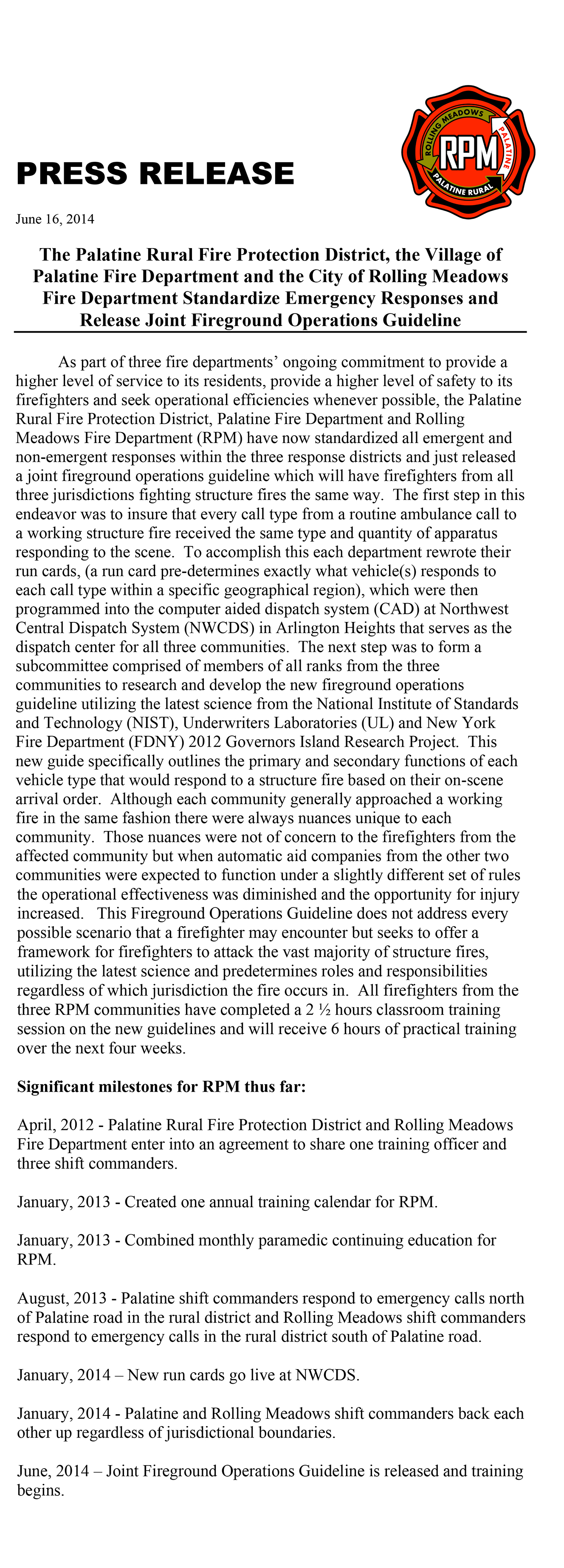Excerpts from ilnews.org:
With the state’s deficit spending on autopilot because of the 21-month-long budget standoff in Springfield, Illinois’ backlog of bills is climbing toward $13 billion.
Some local governments have taken steps to work together to create efficiencies, resulting in savings to taxpayers.
Lt. Gov. Evelyn Sanguinetti recently identified the shared fire protection services in Rolling Meadows and Palatine as an example of local taxing bodies doing it right.
“Eliminating duplication, sharing of services, and consolidating entire governmental bodies should be considered at all levels of government from the bottom to the top,” Sanguinetti said. “You share personnel, you share equipment, you share expertise, and that translates into savings. It’s a win-win situation.”
The city of Rolling Meadows, the Village of Palatine, and the Palatine Rural Fire Protection District are doing exactly that with their intergovernmental agreement to operate as a single entity, according to the Rolling Meadows Fire Chief Scott Franzgrote.
“We’ve been working on this project that we call RPM, which stands for Rural Palatine Meadows, for about five years now,” Franzgrote said. “Our guiding principles are to leverage our combined resources to provide better service to our combined communities, to provide a safer work environment for the firefighters in our three jurisdictions, and to see if there are ways that we can do better for the taxpayers by finding efficiencies within our operations.”
One of the ways the three departments have streamlined operations is by changing the way their personnel train on the job.
“Everyone is now trained the same way,” Palatine Mayor Jim Schwantz said. “With the equipment, Rolling Meadows might use one type of saw to cut through a roof in a fire, whereas Palatine uses a different one, so now we are purchasing all the same equipment and we are all trained on the same equipment so there are no missteps on the scene. A Palatine fireman can now go to a rural rig and be able to know exactly where the equipment is.”
Each department also champions different specialized services to eliminate duplication.
“Rolling Meadows is where the hazmat team is,” Schwantz said. “In Palatine, we house the dive team. We pay a stipend to Rolling Meadows as does Rural to handle, train, and equip their hazmat team. The same is true with Rolling Meadows and Rural towards Palatine with the dive team.”
While creating efficiencies and improving services were the driving force behind the arrangement, it also has resulted in cost savings.
“In 2016, we were scheduled to replace a technical rescue van that we’ve had since the 1970s and, because of this effort we are working together here, we were able to downsize the purchase,” Franzgrote said. “It was going to be a medium duty rescue squad for the City of Rolling Meadows, which was going to cost about $300,000, but we were able to reduce that to a light-duty squad and we probably saved around $125,000.”
And while the local governments haven’t quantified the total savings, they offered other examples of how they have reduced costs.
“Rolling Meadows and Rural, they each make a payment to Palatine to provide the dive rescue. So we make roughly $25,000 a year in revenue and for those communities, it’s far cheaper to pay us than to try and staff their own dive and rescue program,” Palatine Village Manager Reid Otteson said. “For us, it’s a revenue enhancement, which means I don’t have to go levy $25,000 more in property taxes.”
thanks Dan



















































